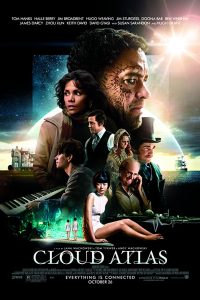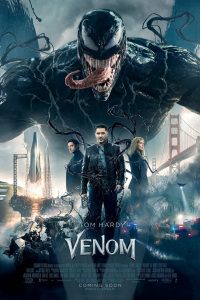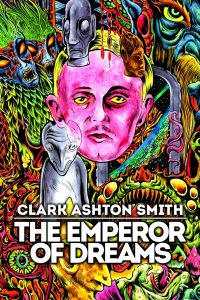Robots and Nonsense: Arley Sorg and Josh Pearce Discuss Star Wars: The Rise of Skywalker
Tim Pratt, via Twitter: Two things they got a lot of in Star Wars is droids and shit that don’t make no sense.
Josh: I liked it more than The Force Awakens and The Last Jedi.
Arley: Me too!
Josh: Good! I recognize that The Last Jedi was trying to do a lot more, storywise. But when I rewatched it I was bored by a lot of parts, like for about a third of it. So, The Rise of Skywalker is a better-to-watch movie, but not necessarily a better movie.
Arley: Agreed. This one had a lot of cool visuals, with new locations that looked awesome. The Sith planet, Keri Russell’s planet, and whatever that iceberg thing was. Good establishing shots. There are more good action scenes in this one than in the other two combined: I called it “an action-soaked opening”; and the movie holds up that tone throughout. It needs to be seen once on the big screen.
Josh: Once and only once. It’s a bit less enjoyable the second time around, when the dazzle has faded.
J.J. Abrams returns to direct Rey no-last-name (Daisy Ridley), Finn no-last-name (John Boyega), and Poe Dameron (Oscar Isaac) in Episode IX as they battle the dark forces of Kylo Ren/Ben Solo (Adam Driver) and the resurrected Emperor Sheev Palpatine! (Ian McDiarmid!) Abrams has a lot of work to do wrapping up a trilogy of trilogies while satisfyingly concluding the arcs of not only its main characters, but also those of Luke Skywalker (Mark Hamill), Leia Organa (Carrie Fisher), C-3PO (Anthony Daniels), Chewbacca (Joonas Suotamo), and Lando Calrissian (Billy Dee Williams), while also trying to introduce new characters Zorii Bliss (Keri Russell) and Jannah (Naomi Ackie).
Josh: Chewie finally gets a medal!
All of that plus the work of re-establishing the Emperor as the main threat—it’s a lot to pack in to two hours and 22 minutes and, as a result, the film doesn’t take a breath. If, perhaps, it had included some of the quieter moments from the previous films to balance the pacing and make it longer—the character introductions from The Force Awakens, Rey’s training and her Force interactions with Kylo Ren from The Last Jedi—and then was chopped up into thirds, then The Rise of Skywalker could make for a good follow-up trilogy to George Lucas’s original films. As it is, the audience is, oddly, presented with too much and too little at the same time.
Josh: One thing this movie got right was keeping the heroes together on an adventure for a good chunk of it. Gave them a chance to develop and explore group dynamics.
Arley: It’s fun to revisit familiar scenes and locations: the desert planet like Tatooine, and Tatooine itself; Luke raising his X-wing from the water; all the throne room scenes; Rey confronting her evil self.
Both: Always with the blowing up the planet.
Arley: There are other modes of warfare.
Josh: Dark-side Rey was awesome, but she was only in it for a minute! I’d like to have seen so much more of that.
This movie imitates many scenes and sequences from the original three movies, but doesn’t retain the emotional impact, including the emotion of tension. There’s no subtlety, so it ends up shouting instead, which is a common function of Disney—
Arley: And Abrams.
—that spectacle, like the Disneyland fireworks as they’re literally bombing you with their “magical” message. In the movie, when the characters come across an alien festival, Rey pauses to say, “I’ve never seen anything like this before.” That’s Disney again beating the audience over the head, going, “Get it? You’ve never seen anything like this before.” The musical score is non-stop so that there’s barely a moment of silence that allows you to process what you’re experiencing.
Arley: It’s instructing the viewer what to feel. J.J. Abrams is a hair shy of Michael Bay. You see this not only in the spectacle but also in the interactions, the bickering, which is trying to imitate the Han/Luke/Leia interaction but is so forced that it loses its charm.
Josh: You can have one smartass. Everyone in this is trying to be the flippant, wise-cracking comic relief. C-3PO’s dialogue, for example, was way out of character.
Arley: It needs that person like Leia to ground them, to play the straight man. Without that dynamic, it’s too much. The writing is terrible but the spectacle is entertaining.
Josh: I guess that’s to be expected, because the other three writers were responsible for Batman v Superman, Justice League, and the Jurassic World movies. All flash, no character or plot. Look, we can nitpick this movie to death because the story is stupid, but I’ll just say—most egregious, J.J. still has no concept of time and space. Ever since Alias, up through and including Star Trek and now Star Wars. Everything is instantaneous travel. Also, the Sith knife is more of his leftover Alias bullshit, copying the “Rambaldi” MacGuffins.
Arley: Just cut the whole festival planet. It’s a waste of time, like the casino planet from The Last Jedi was.
The Rise of Skywalker spends a lot of time that it doesn’t really have walking things back from The Last Jedi: Luke says he was wrong about everything he previously told Rey; Kylo Ren repairs his helmet; surprise, Rey’s parents actually are important; retconning that they can’t use “the Holdo maneuver” again (although didn’t they show a Star Destroyer split in half over the Ewok village?); and sidelining Kelly Marie Tran’s character completely.
Josh: This trilogy is like playing a game of Exquisite Corpse with a bunch of assholes who are purposefully trying to mess up the last thing you wrote down.
The Rise of Skywalker is a movie of aphorisms, filled with lines like, “They win by making you think you’re alone,” and “There’s more of us than there are of them.” All the messaging is heavy handed (Leia literally passes Rey the baton), even for Star Wars, which has always been a morality tale.
Arley: (This is the Michael Bay version of morality tales.)
More than one character prods the plot forward by saying “they have a feeling” which, while strictly in keeping with Star Wars tradition, is still lazy writing. Many major plot points in The Rise of Skywalker rely heavily upon concepts that are not previously established in anything still considered canon. There is no real explanation of Palpatine’s return, other than a throwaway line about “clones and dark science.” That there is any wreckage of the second Death Star, let alone intact pieces that still have working doorways, pushes suspension of disbelief in light of the magnitude of the explosion that closes out The Return of the Jedi.
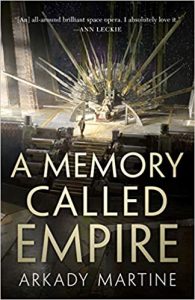
Josh: The whole thing about all the Sith and all the Jedi living within them is a pretty heavy Dune rip off, and it got rather Harry Potter there at the end. Still the parts with the Emperor were the best. I loved the visuals in those scenes, with him floating around like GLaDOS from Portal. The throne room looked like the cover of A Memory Called Empire, and even the sillier parts when he was shooting lightning straight up into the sky reminded me of the cover for Timothy Zahn’s Heir to the Empire.
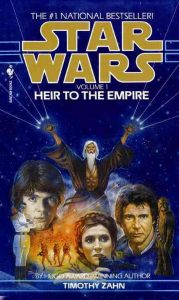 Arley: I liked the last few saber fights — Kylo Ren vs. the knights and Rey vs. the Emperor.
Arley: I liked the last few saber fights — Kylo Ren vs. the knights and Rey vs. the Emperor.
The concept of a “dyad in the Force” similarly comes with very little context, with the Force acting as a magic Swiss Army knife of convenience in many perilous situations. While the whole message of the Star Wars universe has always been “feelings over logic and technology,” a reversion back to mysticism instead of progress, this movie abandons all pretense of science and goes full-on fantasy, complete with cavalry charges, cursed daggers, and soul transference.
Arley: This movie was about pairs thematically. Beats happen in pairs, scenes happen in pairs, characters pair up. Lots of those pairs reference those original three movies, as pairs.
Josh: I don’t usually make note of lighting techniques in movies, but there were three separate instances in this one that I found interesting: I liked the strobe lighting on the Emperor’s face, which they also use later on Rey. Make it look like their faces are shifting. And I noticed an effect on General Pryde’s face, lighting just his eyes, which you see in old horror films, like Dracula or classic sci-fi like original Star Trek and The Twilight Zone.
Arley: The other two movies in this trilogy were so disappointing that when the third movie does something, anything, well or interesting, the contrast makes it stand out so much more.
There were several scenes in which Ridley really conveys intense emotion, as in her reaction to the transport blowing up, or when Kylo Ren has the wayfinder and she hisses “Give it to me!” at him. As good as Daisy Ridley is, though, Rey comes across as kind of a flat character, arc-wise.
Arley: I don’t buy the Emperor’s argument that cutting him down will complete her journey to the Dark Side, when killing all those Stormtroopers before wouldn’t.
Josh: Maybe that’s the whole Jedi code of only fighting in self-defense and never striking down an unarmed person. But yeah, I agree. I thought it was kinda strange that she basically ends up murdering a million unarmed people at the very end. I know that they’re supposed to be Sith adherents, but is it really a defensible action for this kind of hero?
By comparison, Kylo Ren/Ben Solo comes across as a more fully realized character. Adam Driver is consistently the best performer in this series, and although Ren was a tantrum-throwing brat in the previous two films, his character arc in this one accelerates along a genuinely emotional curve.
Arley: The triumph at the end gave me chills. It was emotionally effective and I really liked it.
Josh: Visually, it was cool, but I thought it, along with everything else in this film, was too rushed to feel earned. My favorite moment of the entire film, character-wise, was Oscar Isaac’s head-nod. I do really love Oscar Isaac.
Although Finn finally gets a little more arc in this, when he meets other deserters like himself, he still spends most of the time cheering other people’s actions.
Arley: There’s a phrase for that: Black best friend. He’s there to show how cool the white people are.
Josh: Oscar Isaac isn’t white, but I get what you’re saying.
There’s a whole commentary on slavery hinted at with child conscripts, deserters, and Lando Calrissian which leaves a great story to imagine, where people quest to find their origins and empowerment. It is, amidst the tone of the rest of the movie, kind of beautiful.
Arley: But it sucks what Abrams is doing with Finn’s character. And then you look at the romance. Miscegenation laws were only fully repealed in 1967 so filmmakers are still hesitant to show a Black guy and a white girl kissing, period.
Josh: I was disappointed that she kissed anyone. I didn’t think their relationship was romantic at all! I thought their connection the whole time was that they were the last two trained Force users in the galaxy. It was the two of them versus everyone else.
Arley: She should have been asexual! I liked that Rey was fully dressed like everyone else. They never sexualize her.
Josh: It’s weird that she only has one outfit. Everyone else gets a costume change.
Daisy Ridley as Rey makes for an excellent action hero, and it’s great to see a woman take center stage in a Star Wars trilogy, but it is also unfortunate that Leia is robbed of her own chance to be an action hero. This is, probably, partially due to Carrie Fisher’s death, but the film contains a training sequence in which Leia is fully masked. That kind of body-double stuntwork, combined with the CGI and unfilmed footage already on-hand, could have given her a more active presence. Instead, she was sidelined from that path with some poorly executed excuse, a vision of her child turning evil which convinces her to give up the Force.
Speaking of women in full masks: Keri Russell was built up in promotional material as a new, important character (Zorii Bliss). But rather than give her a central role, the filmmakers do what they did with Gwendoline Christie as Captain Phasma. They take these excellent actresses, hide them completely behind helmets, and end up not doing much with their potential.
Arley: You know the whole reason she’s in it is so Disney can spin her off into a new movie.
Josh: Either that or it’s because J.J. Abrams put all his friends in this movie: Keri Russell from Felicity, Dominic Monaghan from Lost, Greg Grunberg from Alias.
Arley: This movie had a nice theme about found family, and choosing your own identity, but it’s so clumsily told. That alien kid on the desert planet has this completely shoehorned-in line just so Rey could have a moment where she says, “I don’t have a family name.” Obviously that’s going to come up again later on.
Josh: Would you recommend watching this movie?
Arley: Like I said, it’s worth seeing once in the theaters, for the visuals. But this is not a good follow-up to the original trilogy. The Mandalorian is a better place to pick up the story from.
Josh: I agree. The Mandalorian does everything so well that this movie does not. Even small details that make all the difference, like how a TIE fighter lands: in this movie it looks so awkward and goofy, like someone put a toy down. In The Mandalorian, the panels fold up and it looks awesome. I don’t know why J.J. Abrams has all these franchises. Obviously Taika Waititi should have creative control over everything.
Arley: Abrams is good at the spectacle, and they had to keep escalating the threat.
Josh: You don’t necessarily have to make your villains bigger to escalate threat. You can simply make your heroes smaller.
Directed by: J.J. Abrams
Written by: Chris Terrio, J.J. Abrams, Derek Connolly & Colin Trevorrow, based on characters created by George Lucas
Starring: Carrie Fisher, Mark Hamill, Adam Driver, Daisy Ridley, John Boyega, Oscar Isaac, Anthony Daniels, Naomi Ackie, Domhnall Gleeson, Richard E. Grant, Lupita Nyong’o, Keri Russell, Joonas Suotamo, Kelly Marie Tran, Ian McDiarmid & Billy Dee Williams

JOSH PEARCE, Assistant Editor, started working at Locus in 2016. He studied creative writing at SFSU and has sold short stories and poems to a variety of speculative fiction magazines. Born and raised in the Bay Area, he currently lives in the East Bay with his wife and son and spends way too much time on Twitter: @fictionaljosh. One time, Ken Jennings signed his chest.
ARLEY SORG, Associate Editor, grew up in England, Hawaii, and Colorado. He studied Asian Religions at Pitzer College. He lives in Oakland, and usually writes in local coffee shops. A 2014 Odyssey Writing Workshop graduate, he is soldering together a novel, has thrown a few short stories into orbit, and hopes to launch more.
 While you are here, please take a moment to support Locus with a one-time or recurring donation. We rely on reader donations to keep the magazine and site going, and would like to keep the site paywall free, but WE NEED YOUR FINANCIAL SUPPORT to continue quality coverage of the science fiction and fantasy field.
While you are here, please take a moment to support Locus with a one-time or recurring donation. We rely on reader donations to keep the magazine and site going, and would like to keep the site paywall free, but WE NEED YOUR FINANCIAL SUPPORT to continue quality coverage of the science fiction and fantasy field.
©Locus Magazine. Copyrighted material may not be republished without permission of LSFF.




